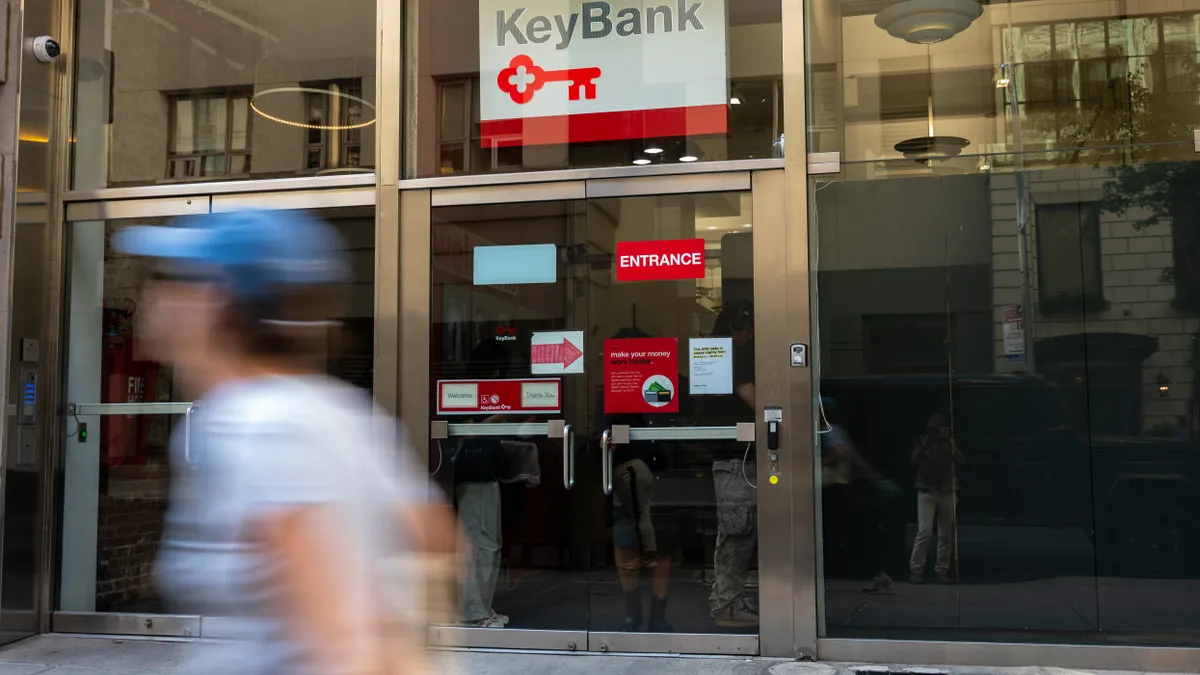TD Bank, HSBC and McKinney, Texas-based Independent Bank have collectively agreed to pay $1.35 billion to settle litigation related to a Ponzi scheme orchestrated by disgraced financier R. Allen Stanford and uncovered in 2009, the banks announced Monday.
The settlements came on a day when a trial on the matter was set to begin in the U.S. District Court for the Northern District of Texas.
TD will pay the lion’s share of the settlement: $1.205 billion. The Canadian bank “provided primarily correspondent banking services” to Stanford’s firm, Stanford International Bank Ltd., and “maintains that it acted properly at all times,” it said in a statement Monday.
“As has been the case throughout these proceedings, TD expressly denies any liability or wrongdoing … and makes no admission in connection to any Stanford matter,” the bank said. “TD elected to settle the matter to avoid the distraction and uncertainty of continuing a long legal proceeding.”
TD will record a provision of roughly 1.2 billion Canadian dollars ($880 million) after tax in the first quarter of 2023, it said. The bank reports earnings Thursday.
If the trial had proceeded, investors would have asked jurors to award damages of up to $10 billion each against TD and HSBC, and as much as $6.5 billion against Independent Bank, according to Bloomberg.
"Given all the challenges faced by the receivership since 2009, this is nothing short of a monumental recovery," Kevin Sadler, the Baker Botts partner who represents the receiver and the Official Stanford Investors Committee, told Reuters.
TD, HSBC and Independent are not the only banks to have settled in the Stanford case. French bank Societe Generale agreed last week to pay $157 million to settle the suit. Jackson, Mississippi-based Trustmark agreed Dec. 31 to pay $100 million.
Independent Bank on Monday agreed to pay $100 million, an amount the bank called “consistent with the terms of prior Stanford-related settlements that have been approved by the Court and were not successfully appealed,” though the bank warned, “it is possible that the Court may decide not to approve the Settlement Agreement or that the Fifth Circuit Court of Appeals may decide to accept an appeal thereof.”
In its statement, Independent denied any liability or wrongdoing in connection with the Stanford suit. Like TD, the bank cited a desire to “avoid the cost, risks and distraction of continued litigation.”
Independent said it expects to recognize a $100 million expense in the first quarter of 2023 related to the settlement. The bank said it inherited the lawsuit in 2014, when it acquired the Bank of Houston.
Unlike TD and Independent, HSBC appears not to have issued a statement on the settlement Monday. The bank did not respond to requests for comment from Bloomberg or Reuters, but both outlets reported HSBC will pay $40 million to settle the lawsuit.
The case
Investors assert the banks should have known Stanford’s promises of above-market returns on certificates of deposit were false, considering the financier’s bank was making hefty wire transfers, along with daily shipments of checks between Antigua and Stanford’s U.S. accounts.
In previous court filings, the banks alleged they “provided routine banking services” to Stanford “and did not know — and could not have known — about the Ponzi scheme,” according to Bloomberg.
Investors, however, allege Trustmark, in a 2006 email trail, expressed “concerns” over an unusual pattern of “wire activity” among Stanford’s entities.
Investors asserted, therefore, the banks “had actual knowledge of the wrongdoing” but “nevertheless, aided and stood by and watched,” according to a November summary of the claims made by a U.S. district court judge and seen by Bloomberg.
By December 2008, Stanford International Bank claimed to have 30,000 clients from 131 countries and $8.5 billion in assets, mostly from sales of CDs. Rather than putting the money in conservative, liquid assets as promised, the funds went into risky projects and resort developments in Antigua, Bloomberg reported.
Investors began cashing the CDs at an unsustainable rate as the financial crisis came to a head in late 2008, and Stanford halted redemptions, according to Bloomberg. While the financier told employees the bank had $5 billion in “excess liquidity,” Stanford’s controller determined it had $173 million on hand.
Stanford is serving 110 years in prison after being convicted in 2012 on fraud and money laundering charges.
The case that was due to start Monday would have marked the second round of Stanford litigation for TD. A Canadian court ruled in TD's favor and found no liability, the bank said in its statement Monday. The Ontario Court of Appeal affirmed the ruling, but an application for leave to appeal went to the Supreme Court of Canada.
“Evidence at trial would’ve shown that TD took in almost $7 billion in CD purchase money from investors, far more than any other bank,” with transfers that “bore numerous red-flag indications of money laundering,” Sadler told Bloomberg.






















